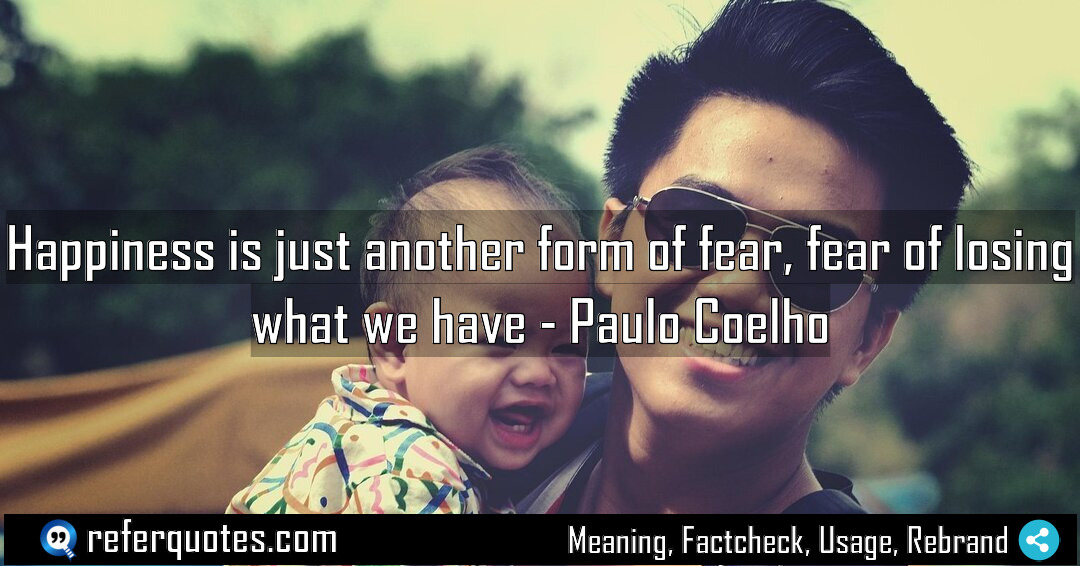Happiness is just another form of fear… sounds bleak, right? But stick with me. It’s not about dismissing happiness, it’s about understanding the hidden psychology that can actually make you more resilient. It’s a game-changer for how you hold onto joy.
Share Image Quote:Table of Contents
Meaning
At its core, Coelho is saying that our experience of happiness is often fragile because it’s tethered to the anxiety of it being taken away.
Explanation
Okay, let’s break this down. We tend to think of happiness and fear as opposites. But what Coelho nails here is the shadow side of contentment. You finally get the dream job, the perfect relationship, the financial security… and then the little voice starts. “What if I lose this?” “Can this really last?” That apprehension, that tightness in your chest—it’s fear. Plain and simple.
And here’s the real kicker: the more you have, the more you have to lose. So your brain, which is wired for threat detection, starts scanning for dangers to your happiness. It’s a protective mechanism, but it can poison the very well you’re trying to protect. It’s not that happiness isn’t real; it’s that our attachment to it introduces a constant, low-grade fear of loss.
Quote Summary
| Context | Attributes |
|---|---|
| Original Language | Portuguese (369) |
| Category | Emotion (177) |
| Topics | attachment (3), fear (92), happiness (48) |
| Literary Style | philosophical (434) |
| Emotion / Mood | somber (55) |
| Overall Quote Score | 85 (305) |
Origin & Factcheck
This line comes straight from Coelho’s 2008 novel, The Winner Stands Alone, which is set against the glamorous but cutthroat backdrop of the Cannes Film Festival. You might see this quote floating around misattributed to Buddhist texts or other philosophers, but its origin is firmly in this modern critique of ambition and success.
Attribution Summary
| Context | Attributes |
|---|---|
| Author | Paulo Coelho (368) |
| Source Type | Book (4032) |
| Source/Book Name | The Winner Stands Alone (55) |
| Origin Timeperiod | Contemporary (1615) |
| Original Language | Portuguese (369) |
| Authenticity | Verified (4032) |
Author Bio
Paulo Coelho(1947) is a world acclaimed novelist known for his writings which covers spirituality with underlying human emotion with a profound storytelling. His transformative pilgrimage along the Camino de Santiago inspired his breakthrough book, The Pilgrimage which is soon followed by The Alchemist< which went on to become the best seller. Through mystical narratives and introspective style, Paulo Coelho even today inspires millions of people who are seeking meaning and purpose in their life
Official Website |Facebook | Instagram | YouTube |
Where is this quotation located?
| Quotation | Happiness is just another form of fear, fear of losing what we have |
| Book Details | Publication Year: 2008 (Brazil); ISBN: 978-0-06-175044-1; Latest Edition: Harper Perennial 2009; 368 pages. |
| Where is it? | Approximate page 217, Chapter: The Shadow of Joy |
